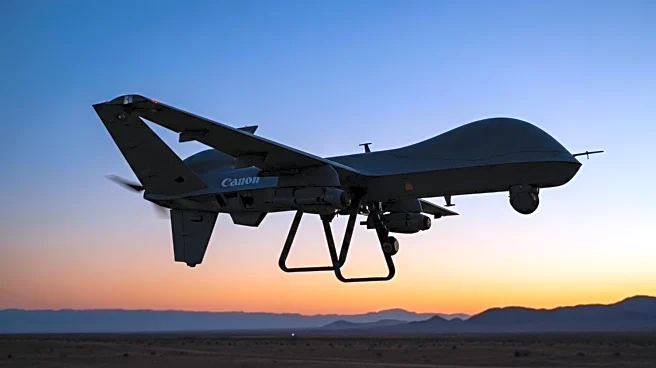What's Happening?
The Pentagon has confirmed the deployment of approximately 200 U.S. troops to Israel to support and monitor a ceasefire deal in Gaza. These troops are tasked with establishing a civil-military coordination center to manage humanitarian aid and logistics. However, they are not expected to enter Gaza itself. This deployment comes during a period of government shutdown, which could delay paychecks for active-duty military personnel unless Congress passes specific legislation to ensure uninterrupted pay. The Pay Our Military Act, which previously guaranteed pay during shutdowns, has not yet been approved, leaving these troops potentially without pay while serving overseas.
Why It's Important?
The deployment underscores the significant role of the United States in supporting Israel's military efforts, reflecting a long-standing alliance that has seen over $130 billion in U.S. assistance since Israel's founding in 1948. This financial support is often debated, with critics highlighting domestic issues such as underfunded schools and veteran care that could benefit from such resources. The delay in military pay during the shutdown further complicates the situation, potentially affecting troop morale and financial stability for their families back home. The mission in Israel involves delicate operations in a tense environment, requiring careful navigation to avoid escalation.
What's Next?
The immediate focus for the deployed troops will be on coordinating aid deliveries and monitoring compliance with ceasefire terms. The broader implications of the U.S. involvement in Israel's conflict may prompt discussions in Congress regarding military funding and the prioritization of domestic versus international aid. The situation remains fluid, with potential legislative actions needed to secure military pay during the shutdown.
Beyond the Headlines
The deployment highlights ethical considerations regarding the allocation of U.S. resources and the impact on domestic issues. The humanitarian crisis in Gaza, with significant civilian casualties, adds complexity to the mission, requiring U.S. troops to manage aid distribution in a highly scrutinized environment.












